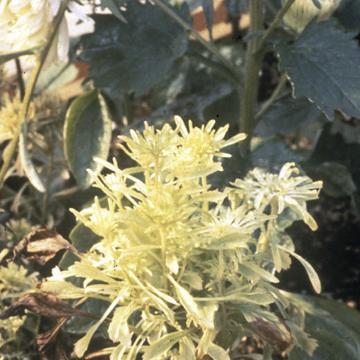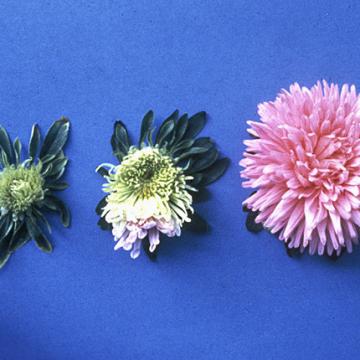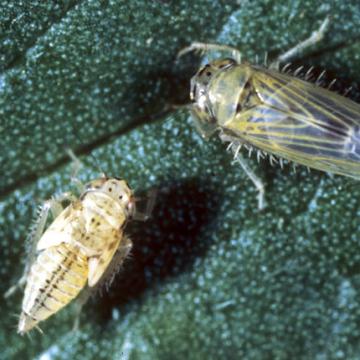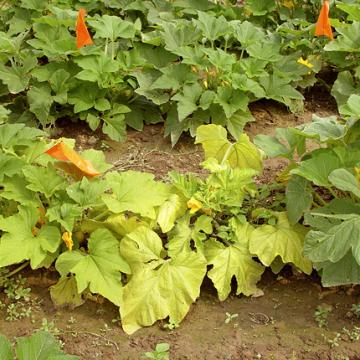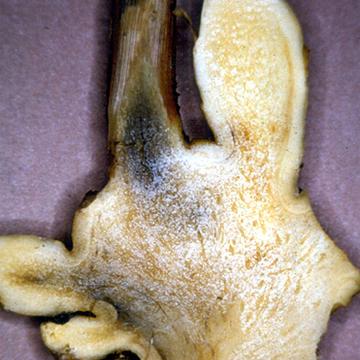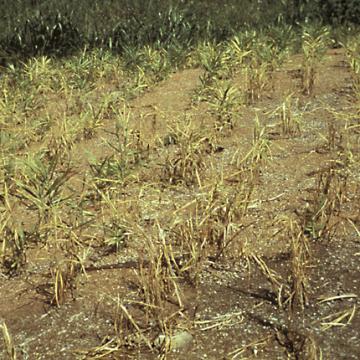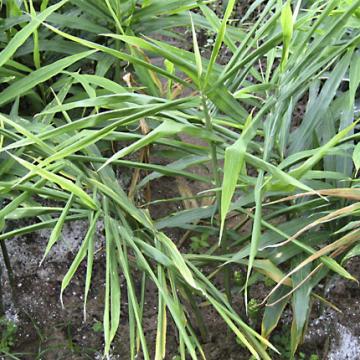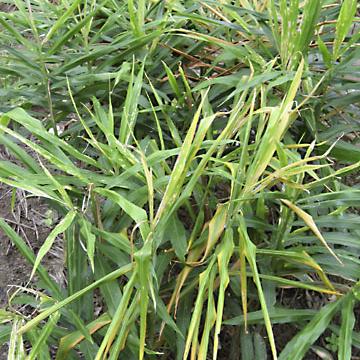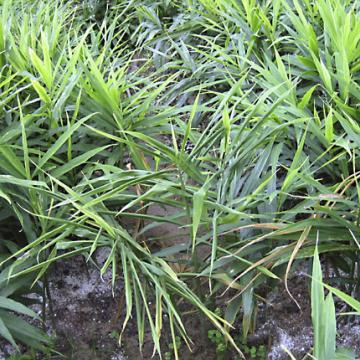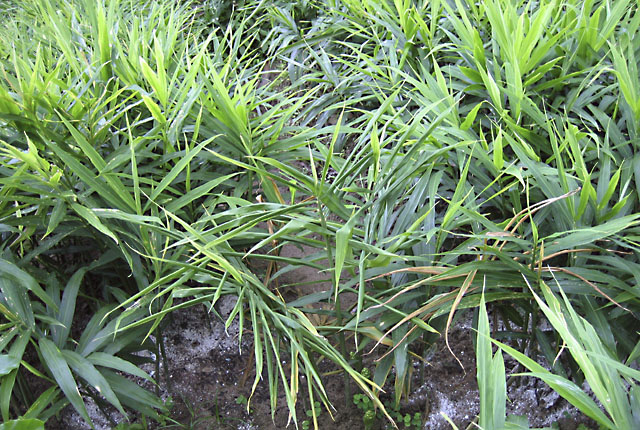DISEASE: Aster yellows
HOST: Aster
Foliar symptoms of chlorosis, malformation of leaves, and phyllody.

Aster yellows | Aster
DISEASE: Aster yellows
HOST: Aster (Aster sp.)
PATHOGEN: 'Candidatus Phytoplasma asteris'
PATHOGEN SYNONYM: Phytoplasma Aster yellows group
SOURCE: R. McCoy, M. Davis
DISEASE: Aster yellows
HOST: Aster
Flowers with phyllody (left and center). Healthy flower (right).

Aster yellows | Aster
DISEASE: Aster yellows
HOST: Aster (Aster sp.)
PATHOGEN: 'Candidatus Phytoplasma asteris'
PATHOGEN SYNONYM: Phytoplasma Aster yellows group
SOURCE: R. McCoy, M. Davis
DISEASE: Aster yellows
HOST: Aster
Macrosteles sp., a leafhopper vector of aster yellows phytoplasma.

Aster yellows | Aster
DISEASE: Aster yellows
HOST: Aster (Aster sp.)
PATHOGEN: 'Candidatus Phytoplasma asteris'
PATHOGEN SYNONYM: Phytoplasma Aster yellows group
SOURCE: J. Clark, A. Purcell, M. Davis
DISEASE: Aster yellows
HOST: Squash
Diagnostic characteristics for the disease are yellowing of young leaves, proliferation of secondary shoots, and rigid erect habit. Leaves are misshapen and smaller than normal and have stiff, thick laminae.
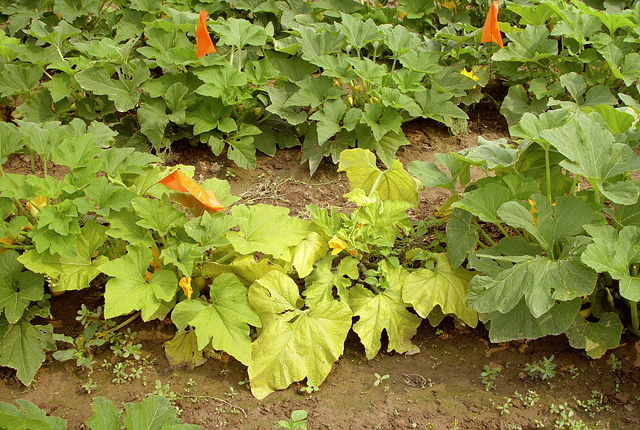
Aster yellows | Squash
DISEASE: Aster yellows
HOST: Squash (Cucurbita sp.)
PATHOGEN: 'Candidatus Phytoplasma asteris'
PATHOGEN SYNONYM: Phytoplasma Aster yellows group
SOURCE: S. Miller
DISEASE: Bacterial wilt
HOST: Ginger
Blackening of pith and cortex of rhizome.
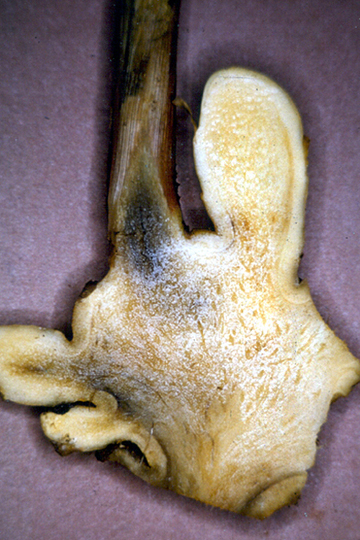
Bacterial wilt | Ginger
DISEASE: Bacterial wilt
HOST: Ginger (Zingiber officinale)
PATHOGEN: Ralstonia solanacearum
PATHOGEN SYNONYM: Pseudomonas solanacearum
SOURCE: A. Alvarez
DISEASE: Bacterial wilt
HOST: Ginger
Field of wilted ginger plants.
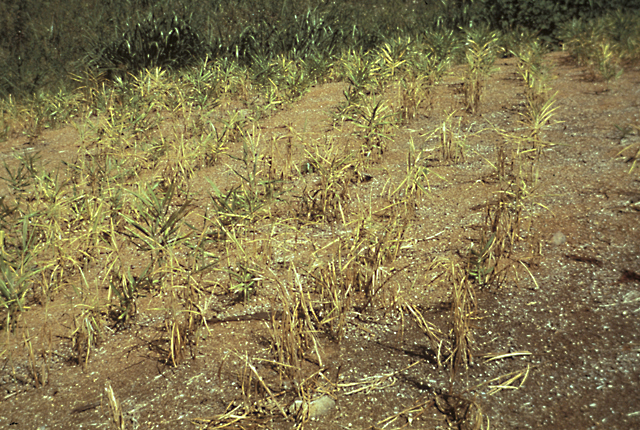
Bacterial wilt | Ginger
DISEASE: Bacterial wilt
HOST: Ginger (Zingiber officinale)
PATHOGEN: Ralstonia solanacearum
PATHOGEN SYNONYM: Pseudomonas solanacearum
SOURCE: A. Hayward
DISEASE: Bacterial wilt
HOST: Ginger
Ginger plants with yellowing, marginal necrosis, and downward curling of infected leaves, in contrast to darker, fully expanded healthy leaves.

Bacterial wilt | Ginger
DISEASE: Bacterial wilt
HOST: Ginger (Zingiber officinale)
PATHOGEN: Ralstonia solanacearum
PATHOGEN SYNONYM: Pseudomonas solanacearum
SOURCE: M. Paret, N. Joy
DISEASE: Bacterial wilt
HOST: Ginger
Cupping and leaf necrosis precedes wilt and death of plants.
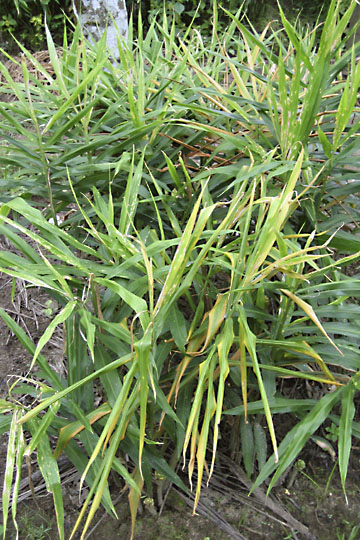
Bacterial wilt | Ginger
DISEASE: Bacterial wilt
HOST: Ginger (Zingiber officinale)
PATHOGEN: Ralstonia solanacearum
PATHOGEN SYNONYM: Pseudomonas solanacearum
SOURCE: M. Paret, N. Joy


